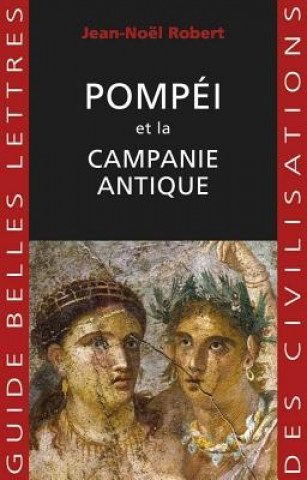
Kod: 11157357
Pompei Et La Campanie Antique
Autor Jean-Noel Robert
Each guide in Les Belles Lettres’ “Civilisations” collection presents a civilisation from the vantage point of its mindset and behavioural history; i.e., each strives to explore the various aspects of the depicted civilisation thr ... więcej
- Język:
 Francuski
Francuski - Oprawa: Miękka
- Liczba stron: 345
Wydawca: Les Belles Lettres, 2015
- Więcej informacji o książce

Bon podarunkowy: Radość gwarantowana
- Podaruj bon o dowolnej wartości, a my się zajmiemy resztą.
- Bon podarunkowy dotyczy całej naszej oferty.
- Możesz wydrukować elektroniczny bon z e-maila a następnie przekazać go obdarowanemu.
- Ważność bonu wynosi 12 miesięcy od daty wystawienia.
Więcej informacji o Pompei Et La Campanie Antique
Za ten zakup dostaniesz 68 punkty
 Opis
Opis
Each guide in Les Belles Lettres’ “Civilisations” collection presents a civilisation from the vantage point of its mindset and behavioural history; i.e., each strives to explore the various aspects of the depicted civilisation through the perspective and judgement criteria – so unlike our own – of the era’s inhabitants.Adopting this viewpoint is essential in order to “fathom” the cities of Pompeii and Campania. The traditional image which comes to mind is that of small towns in which people enjoyed a pleasant and peaceful existence in the tranquil opulence of a heavenly landscape. Yet life there was nothing like that in the final years preceding the eruption of Mount Vesuvius. First of all, in AD 62, Pompeii had endured a violent earthquake which had destroyed most of the city. Its inhabitants were thus living among ruins, rubble and partially reconstructed buildings. Poverty, misery and slavery were rampant. Obviously, people today who visit the cities’ luxurious dwellings, with their multicoloured frescos creating a world of beauty, will say that their owners were scarcely to be pitied. And yet, these houses were dark and cold, and the promiscuity of dozens, if not hundreds, of slaves prohibited any degree of intimacy. Not to mention that the streets were always crowded, noisy, and littered with garbage and sundry excrement. Yes, Pompeii stunk! So it would seem that we need to reconsider all our preconceptions – even those which history has handed down to us. No, the volcano did not erupt on 24 August of AD 79, as all pupils have been taught. In-depth research compels us to acknowledge that it happened two or three months later.This work therefore invites us to experience a rediscovery. It completes the book devoted to Rome in two ways: first, it was in Campania – site of the first Greek colonisation in Italy – that the development of Roman civilisation began. Next, the sole benefit of the volcano’s eruption was that its deadly path preserved elements of the inhabitants’ daily lives better than in any other site. This book offers us a glimpse into the ways in which a small Roman Empire city functioned, while raising all the questions that always come up in a search for the truth. Readers will thus have an opportunity to participate in a full-fledged treasure hunt whose solutions can only be found in history, archaeology and researchers’ discoveries.
 Szczegóły książki
Szczegóły książki
Kategoria Książki po francusku HISTOIRE Antiquité
116.15 zł
- Pełny tytuł: Pompei Et La Campanie Antique
- Autor: Jean-Noel Robert
- Język:
 Francuski
Francuski - Oprawa: Miękka
- Liczba stron: 345
- EAN: 9782251410548
- ID: 11157357
- Wydawca: Les Belles Lettres
- Waga: 408 g
- Wymiary: 210 × 133 × 19 mm
- Data wydania: 13. March 2015
Ulubione w innej kategorii
-

Compagnonnage guerrier et clientèle en Gaule au Ier s. av. J.-C.
137.33 zł -
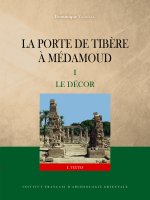
La porte de Tibère à Médamoud
368.13 zł -
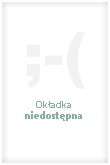
Mammisis of Egypt
234.51 zł -
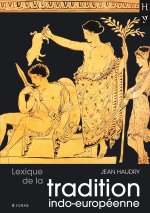
Lexique de la tradition indo-européenne
120.96 zł -
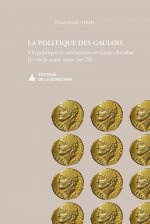
La politique des gaulois
135.82 zł -
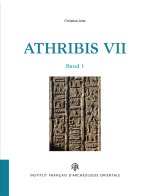
Athribis VII - 2 volumes
748.82 zł -

L'Infini dans un roseau
128.29 zł -

Nos ancêtres les Gaulois ((Réédition))
61.73 zł -
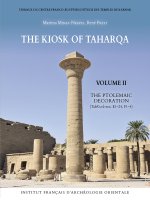
The Kiosk of Taharqa
224.67 zł -
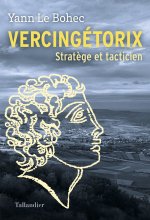
Vercingétorix chef de guerre, stratège et tacticien
120.46 zł -
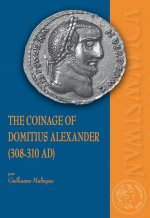
THE COINAGE OF DOMITIUS ALEXANDER (308-310 AD)
185.12 zł -
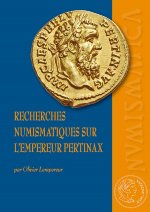
Recherches numismatiques sur l'empereur Pertinax
259.41 zł -
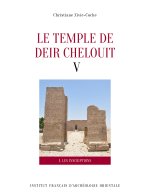
Le temple de Deir Chelouit V
630.06 zł -
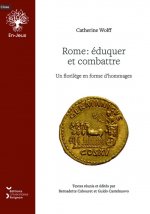
Rome, éduquer et combattre - un florilège en forme d'hommages
126.89 zł -
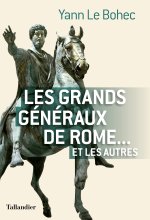
Les grands généraux de Rome... et les autres
120.46 zł -
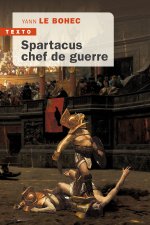
Spartacus chef de guerre
56.61 zł -

Supplément Revue Archéologique de Narbonnaise n° 45 Un espace rural antique dans le territoire de la
209.91 zł -
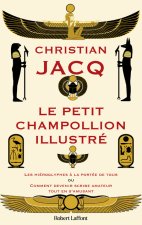
Le Petit Champollion illustré
116.15 zł -

Le nazisme et l'Antiquité
101.09 zł -
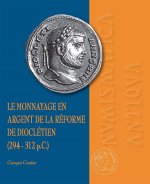
Le monnayage en argent de la réforme de Dioclétien (294-312 p.C.)
259.41 zł -

Les Jardins romains
225.98 zł -
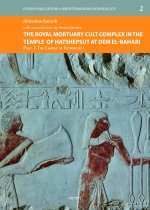
The Royal Mortuary Cult Complex in the Temple of Hatshepsut at Deir el-Bahari. Part I
460.19 zł -

Les paysans gaulois
142.65 zł -
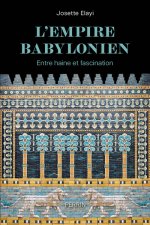
L'Empire néo-babylonien - Entre haine et fascination
135.12 zł -
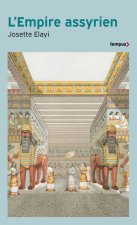
Histoire de l'empire assyrien
53.20 zł -

L'Inde Des Gupta (Ive - Vie Siecle)
157.91 zł -
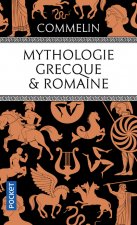
Mythologie grecque & romaine
57.62 zł -
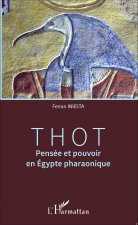
Thot
160.52 zł -
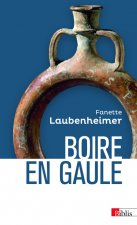
Boire en Gaule
61.53 zł -

Histoire de Rome
66.55 zł -
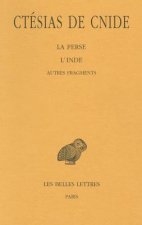
Ctesias de Cnide, La Perse - l'Inde - Autres Fragments
440.52 zł -

Precis Du Systeme Hieroglyphique Des Anciens Egyptiens Ou Elements Premiers de Cette Ecriture Sacree
85.32 zł -
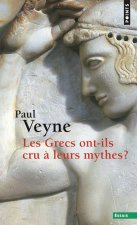
Grecs Ont-Ils Cru Leurs Mythes ? . Essai Sur L'Imagination Constituante(les)
54.60 zł -

Germanicus
155.70 zł -

Proceedings of the 14th International Conference for Nubian Studies
605.46 zł -
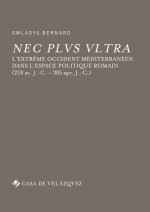
NEC PLUS ULTRA
200.17 zł -
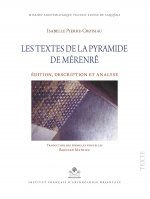
Les Textes de la Pyramide de Merenre: Edition, Transcription Et Analys
556.07 zł -
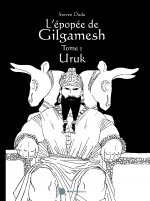
L'épopée de Gilgamesh - Tome 1 : Uruk
101.09 zł -
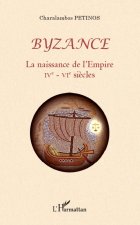
Byzance
113.64 zł -
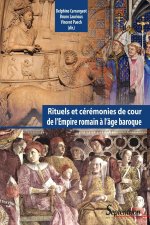
Rituels et cérémonies de cour, de l'Empire romain à l'âge baroque
120.96 zł -
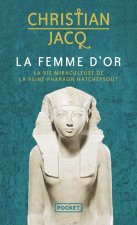
La Femme d'or
54.70 zł -
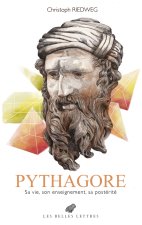
Pythagore
125.88 zł -

La Littérature de l’Égypte ancienne. Volume I
185.12 zł -
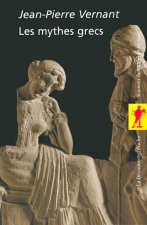
COFFRET 2VOL VERNANT MYTHES GRECS
142.65 zł -
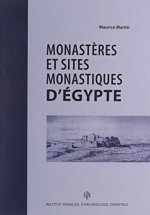
MONASTERES ET SITES MONASTIQUES EN EGYPTE
180.10 zł -
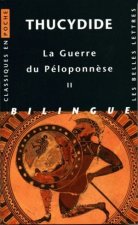
Thucydide, Guerre Du Peloponnese. Tome II: Livres III, IV, V
86.43 zł -

Au-delà de Karnak
432.49 zł -

Vitruvius auctor. L'œuvre littéraire de Vitruve et sa réception dans la littérature
135.82 zł -
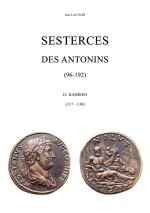
Sesterces des Antonins (96-192) II-Hadrien
333.40 zł
zadowolonych klientów
Od roku 2008 obsłużyliśmy wielu miłośników książek, ale dla nas każdy był tym wyjątkowym.
Copyright! ©2008-24 libristo.pl Wszelkie prawa zastrzeżonePrywatnieCookies



 21 milionów książek
21 milionów książek Dostawa 10.99 zł
Dostawa 10.99 zł (32) 444 93 66 (8-15.30h)
(32) 444 93 66 (8-15.30h)